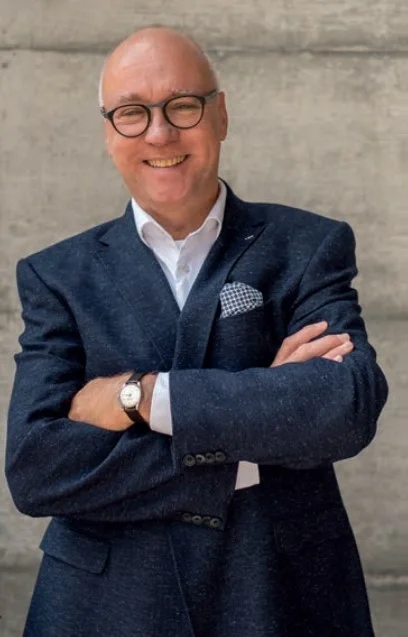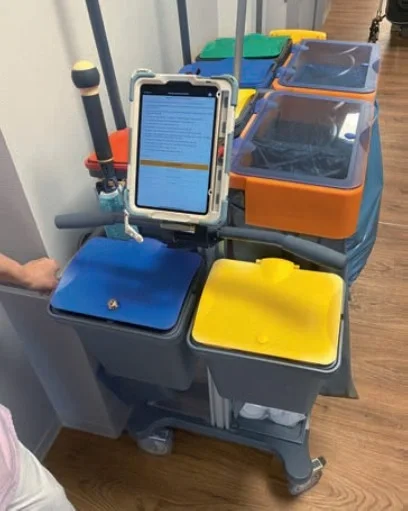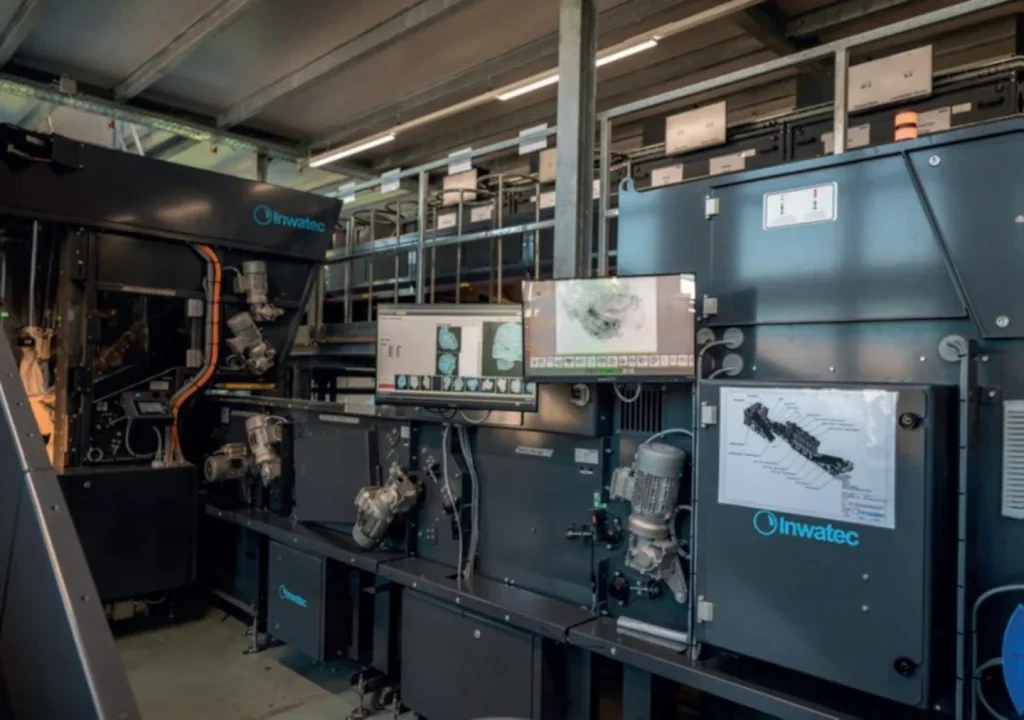
As several key economic indices (such as ZEW*) demonstrated a sharp drop this month (October), most local economists and analysts believe the German economy may face a complex period in Q4 of 2024.
While the current situation in the German banking – and especially automotive – sectors remain alarming, the dynamics of the country’s textile care sector is slightly better, although a number of serious problems prevents its further growth.
Traditionally the textile care sector of Germany has been characterised by a high level of fragmentation along with strong competition, which remains one of the major growth drivers of the market at present. The demand for textile care services in Germany is high, which contributes to the growth of the industry in the more economically developed Western and former communist eastern part of the country.

The industry has always been within the sphere of major global players, a significant part of which is based within the country. In recent years many of them have expanded their local presence, planning a further growth in the local market in years to come.
An example is Alliance Laundry Systems, which considers the German market as one of its priorities for its long-term growth. As Frederick Ahrens, sales director DACH at Alliance Laundry Systems told LCNi Alliance Laundry Germany has a clear growth strategy in Germany – and this is a long term strategy. Ahrens comments: “For 2024 we will grow in terms of revenue in Germany. The main reason is that we are concentrating on a strategy that was decided years back and we are focussing on that. We keep on developing and growing our existing network of local partners, we keep on investing in new sales people and we demonstrate flexibility to find solutions for our partners. At the end this makes us independent and strong.”
According to Ahrens, the consequences of the pandemic and energy crisis continue to put serious pressure on the industry. “Laundry and cleaning services in Germany have had a hard time. If we take the coronavirus pandemic as an example, the demand to wash your business shirts was no longer there as everyone was forced to work from home. After the pandemic crisis, the laundry industry recovered before being hit by the sudden high energy and gas prices. The business climate for laundry and textile companies is subdued, with less good business expected in the second half of the year. In addition, the sector, like many other sectors, is struggling with a shortage of skilled workers due to the coronavirus pandemic.

“Many workers have not returned to the industry after the wave of layoffs during the pandemic. At the same time, the workforce is getting older and older and new skilled workers are hard to find, making it difficult to fill vacancies. In order to find staff, companies in the sector have to plan for higher wages.
We see ourselves as a partner to the industry and try to respond to market requirements on the product side, such as efficient and energy-saving products, but also to offer financing solutions. We support the industry wherever we can and we will continue to master the challenges together in the future.”
In the meantime, representatives of Miele remain more optimistic, regarding its further prospects in the German market.
As Michael Arendes, senior manager laundry technology at Miele’s German sales company told this year the company achieved some important results in the domestic market, planning a further expansion. “This year, Miele has achieved major results in the German laundry and textile care market in retirement homes, commercial cleaning, hotels and fire departments. As a system provider for retirement homes, Miele now offers new, digital solutions that are completely independent of appliances. These include Miele MOVE Clean+, a new software that simplifies workflows in cleaning, hygiene and facility management.” The company does not expect a significant growth of the market in the short-term, “but rather slight increases in certain directions, which remain priority for its business”.
Arendes continues: “We are not currently anticipating disproportionate growth in market potential. Commercial laundries are not among Miele Professional’s customers. Instead, we focus on customers who do their own laundry on site – this is becoming a trend again, and laundry is being processed more and more often in-house. Miele is the market leader in this area because we offer the right washing and drying programmes for a wide range of target groups and textiles. Wetcleaning is still less of a focus because the high proportion of home office work has reduced the demand for business clothing.”

At the same time, for Kannegiesser, the current year was generally successful in the home market, as it has been able to implement some of its priority targets for 2024. Joachim Rauschmaier, head of sales for Germany, Austria and Switzerland, comments: “Our customer base was really in an ‘investment-mode’ and we could realize some major complete laundry projects, but also many smaller projects. All our manufacturing capabilities all fully booked in all factories and we have even massively invested in additional work force, in order to meet the requirements for now and for the coming years.” Rauschmaier has acknowledged the existence of some serious challenges in the German market for the company at present, adding that the company has been working on their solution.
Rauschmaier continues: “We do not believe that the overall volume of work will grow massively, as the market is pretty much saturated. However the overall circumstances for the laundries are changing and they are creating huge challenges for the laundries in their daily operation. Finding the right number and qualification of employees seems to be one of the main topics for our customers these days. Followed by the necessity to reduce the energy consumption, the CO2- emmissions and environment protection. Especially in our domestic market these challenges are not new to us, just the importance has changed. Our design teams have invested a lot of time and efforts to develop machines with higher productivity and better ergonomics. In addition to that an entirely new range of equipment with modern robotic solutions is already available, and more will be launched in the coming years. Kannegiesser has always invested in research and development projects in order to reduce the overall consumptions of our individual machines, but also probably even more important, to have a close look at the entire process in a laundry, in order to identify and reduce the losses. Together with our customers we have realized several outstanding projects, with considerable low overall energy consumptions. And we will continue to look for even further improvements.”
For Jensen, the German textile care sector has always been among the most priority, while despite the currently existing economic problems the company looks towards future in Germany with serious optimism.
Ronny Hunger, Jensen’s SSC Leader Germany commented: “The market environment in Germany is optimistic and we expect further growths in the coming years. We also see more of our German customers planning to invest in large greenfield-projects to prepare their enterprises for the future and realize highest degrees of automation and best efficiencies. Most of German laundry operations suffer from lack of manpower and skilled workers which raises the demand of automated processes. JENSEN offers highly innovative solutions for automation with robotics and AI. With Jensen’s partner Inwatec we are well prepared to meet the increasing demand for automated soil sorting solutions, feeding robots and automatic logistic systems.” He adds, that in recent months the company has strengthened its presence in Germany, planning further development.
Hunger continues: “In the past months, Jensen has realised a couple of innovative projects in Germany and installed automatic soil sorting systems from Jensen’s partner Inwatec in different market segments. To identify items, different technologies were combined, from camera identification with AI to chip reading and detection of foreign objects by X-ray scanning. We see a high demand for automatic and robotic solutions on the German market.
“Moreover, the cruise ship market is still booming resulting in new projects, both for new cruise liners as well as for the refurbishment segment.”
Finally, Thomas Zeck, commercial director of Kreussler Textile Care, another major local player also expects the growth of the domestic market in the near future. “We definitely expect a further growth especially in the laundry market. As the market of washing hotel and restaurant textiles has bounced back after the pandemic, and as our original wetcleaning technology Lanadol is still going very strongly (not just) in Germany, our portfolio matches the steadily growing demands in terms of both quality and sustainability for laundries of any size. In regard to drycleaning, the local market tends rather to shrink, but at the same time the demands on quality rise.”
According to Zeck, among the main challenges the company faces in its domestic business is the war in Ukraine, which still affects the market, not just in Germany.
Zeck continues: “Laundries and cleaners don’t find qualified personnel, although this is at least partly buffered by process optimisation and automatisation. So, all in all, we definitely have a positive lookout, but there are enough challenges in the future to keep us as well as the whole market busy steadily looking for the best ways to maximise beneficial factors while keeping the others as low-impact as possible.”






